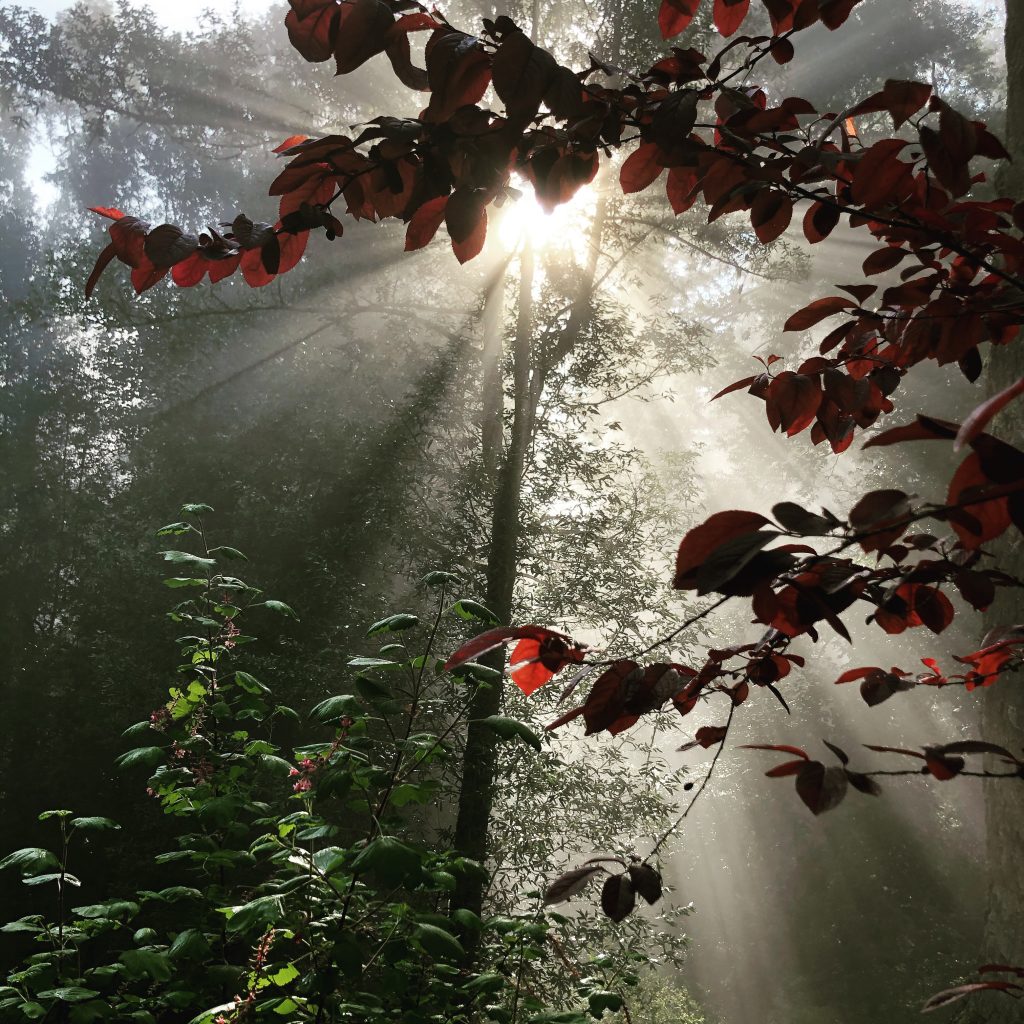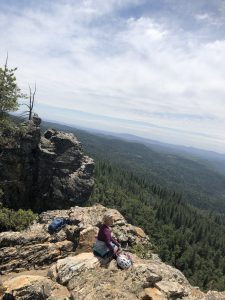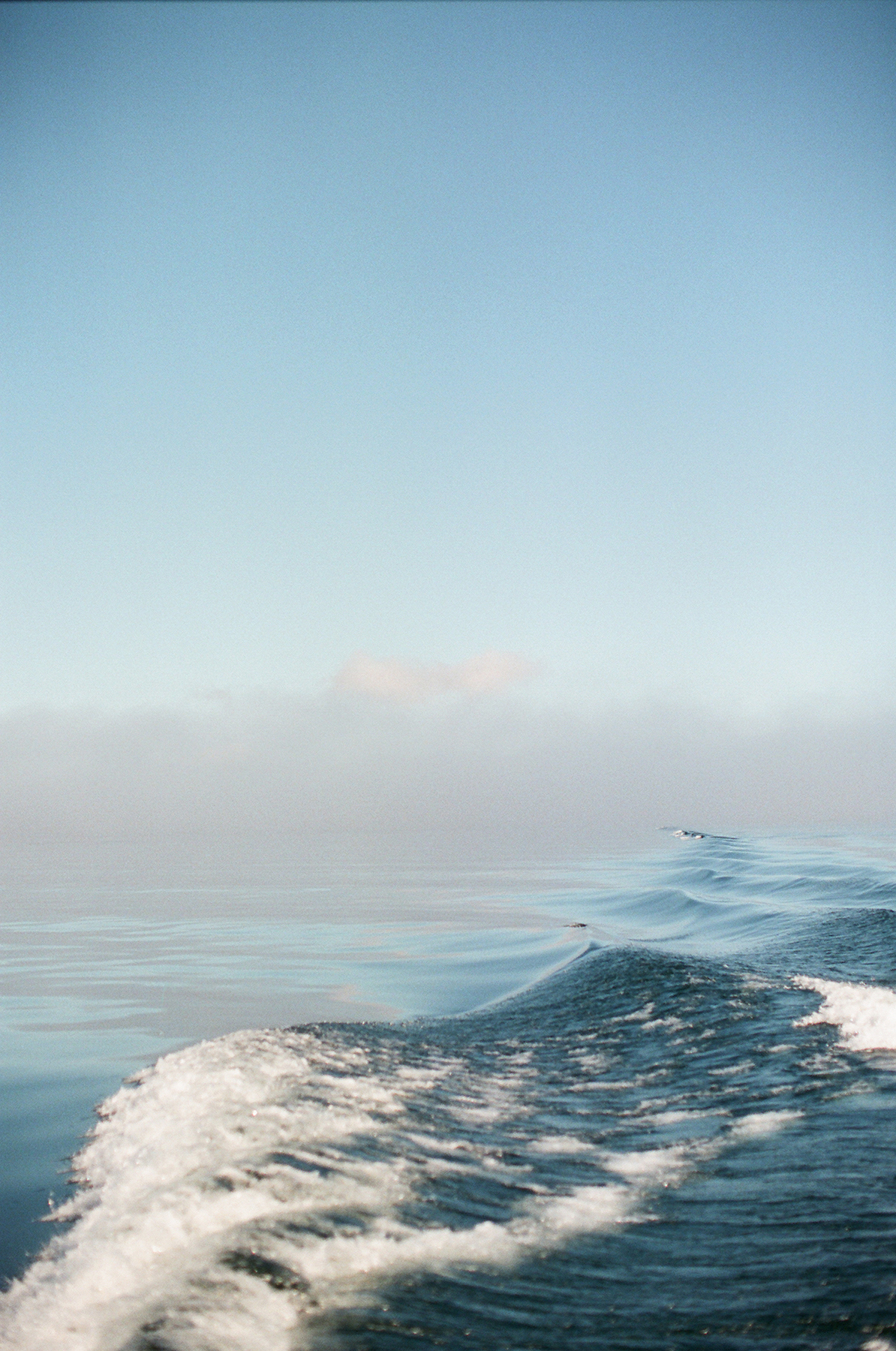
Hi Everyone. Albert Flynn DeSilver here in West Marin California. I honestly have lost track of whether or not we are still under Shelter in Place orders, especially since I work at home. I’ve had an online business now for several years being a poet, writer, and teacher occasionally getting out to teach LIVE events at places like Spirit Rock Meditation Center, the Esalen Institute, Omega, 1440, and writing conferences nationally, etc. All of course canceled now and gone ZOOMY. This sheltering in place has actually been a surprising and most-welcome boon for my writing and teaching. I grieve at the suffering a pandemic and economic fallout causes, and yet the planet needs a break from all this rampant consumption, right? I see this as a time of great awakening, reflection, opportunity, and creativity. Besides staying at home I do also get out to ride my mountain bike, hike with the dog, commune with the birds, laugh with the clouds, dance between the raindrops, swing from vines of sunshine. . . You know, poet stuff. But enough about me. Let’s get to serving you up some yummy poems, ideas, inspiration, resources and literal food prep direction. Here goes. Enjoy. I hope this serves you well. With blessings and gratitude and in poetry always, Albert
POEM: Because we’re right on the cusp of summer, I’m going to start with THE SNOW MAN by Wallace Stevens (one of my favorite poems EVER):
One must have a mind of winter
To regard the frost and the boughs
Of the pine-trees crusted with snow;
And have been cold a long time
To behold the junipers shagged with ice,
The spruces rough in the distant glitter
Of the January sun; and not to think
Of any misery in the sound of the wind,
In the sound of a few leaves,
Which is the sound of the land
Full of the same wind
That is blowing in the same bare place
For the listener, who listens in the snow,
And, nothing himself, beholds
Nothing that is not there and the nothing that is.
CRAFT: “On Obsession” Mary Jo Bang https://www.youtube.com/watch?v=TaYwK8aw4xU
PROMPT: Write a poem of 10 lines or less from the opposite season. Include the emotion of longing WITHOUT using the word “longing.” Start by hand. Write 10 versions at least one version using your non-dominant hand. Another version should be written in crayon. Only one can be typed.
JOURNAL: I’m going to start with my hometown journal The West Marin Review: https://westmarinreview.org/
RECIPE: from Jennifer’s Kitchen.com
Cherry Milkshake
prep 7 mins
total 7 mins
author jenniferskitchen
yield 1 – 2 servings
Deliciously sweet and creamy with no added sugar.
Ingredients
- 1 large frozen banana, cut into pieces (Here’s the best way to freeze bananas.)
- 2/3 cup milk (A combination of almond milk and coconut milk is delicious.)
- 4 dates
- 1 teaspoon grape juice concentrate or cherry juice concentrate
- 1 pinch salt
- 1 teaspoon vanilla
- 1 cup frozen pitted cherries
Instructions
- Place all ingredients except cherries in blender and blend until bananas and dates are chopped.
- Add cherries and blend until fairly smooth. Serve immediately.
Notes
I recommend a heavy-duty blender to make this milkshake to ensure the dates get blended well.
*
MPC Covid Confinement Writing Retreat—Day 2 (June 9, 2020)
Hello, Albert here again. Poetry, ahh poetry elixir of the soul. What’s fluttering about in my mind this morning? Painting. Specifically Julian Schnabel, who’s (?) Hulu documentary I watched last night. Talk about poetry! My initial thought as images of his paintings flashed across the screen was ‘I could write an interesting poem about anyone of these works.’ And many of them are imbued with words or at least a word. I remember being a young art student in the mid 1980’s and he had recently come upon the scene and was a massive sensation in New York, and so I went to a show at Pace-Macgill in midtown with my sister in the late 90s. I was already skeptical since my mother—ever the armchair critic said—when I mentioned we were going to a Julian Schnabel show—”oh the broken-plate trouble,” and promptly rolled her criticising eyes. In any event off we went. I remember being wowed by the glitz and glamor of the gallery and space, all the gallerists dressed to the nines as if they were about to dash off to the Oscars. The gilded door frames shimmering brass and glass, glass, glass. And then there you are boxed in a pure white cave at the whim of a confining geometry barely able to breathe or think straight. And out pop these giant red paintings with messy things written on them like “There is no place more horrible on this planet than a fox farm during pelting season” (except maybe a 40X20 foot abstract red painting with those very words hanging in a posh New York gallery and selling for upwards of $500,000). I mean, don’t get me wrong, I agree with the sentiment in principle , but was this an environmental activist plea? An intellectual mind game? An art-world insider joke? I wasn’t sure and so dismissed it as “bad art.” Hah. Turns out I was jealous. I always dreamed of being a famous artist, or even better making a great living through my art on my terms, which is what Schnabel has always done. I now see his work in context and find much of it brilliant and his commitment to painting and art-making inspirational. Watch this documentary. You will hopefully see the poetry. And even more-so than his paintings, his films are extremely poetic. Basquiat, Before Night Falls, The DIving Bell and the Butterfly, all brilliant. I do NOT recommend the one on Van Gogh. I found it disturbing and physically difficult to watch as he was constantly jerking the camera around to try and mimic Van Gogh’s distorted jittery visual perceptions of the world. Can you say seasickness? Now back to our regularly scheduled program, which is poetry. . .
POEM:
WHY I AM NOT A PAINTER
I am not a painter, I am a poet.
Why? I think I would rather be
a painter, but I am not. Well,
for instance, Mike Goldberg
is starting a painting. I drop in.
“Sit down and have a drink” he
says. I drink; we drink. I look
up. “You have SARDINES in it.”
“Yes, it needed something there.”
“Oh.” I go and the days go by
and I drop in again. The painting
is going on, and I go, and the days
go by. I drop in. The painting is
finished. “Where’s SARDINES?”
All that’s left is just
letters, “It was too much,” Mike says.
But me? One day I am thinking of
a color: orange. I write a line
about orange. Pretty soon it is a
whole page of words, not lines.
Then another page. There should be
so much more, not of orange, of
words, of how terrible orange is
and life. Days go by. It is even in
prose, I am a real poet. My poem
is finished and I haven’t mentioned
orange yet. It’s twelve poems, I call
it ORANGES. And one day in a gallery
I see Mike’s painting, called SARDINES.
—Frank O’Hara
PROMPT: Make a painting with a single word in it. OR Write a poem about why you are not some other vocation. Keep it out of the arts. FInd something arcane or archaic. Consider the language. . .like “Sawyer” or “Apirist.”
CRAFT: https://www.youtube.com/watch?v=gHvQgy_mCc0
Think about how this relates to your poem-making process.
RECIPE: https://mymodernmet.com/brushstroke-cakes-kalabasa/
11 color chopped salad:
1 carrot chopped, 1 purple carrot chopped, Half a red pepper diced, half a green pepper diced. Handful of mixed greens, half yellow pepper diced, 37 blueberries, 17 blackberries, 12 heirloom cherry tomatoes, 1/4 watermelon rinds cut off cubed, half an apple thinly sliced. Toss with 1 clove garlic crushed in a mixture of canola oil, apple cider vinegar, lemon juice, fresh thyme, and oregano, salt and pepper.
JOURNAL: Lungfull Magazine, one of my all time favs, a New York Institution, the only journal with a 100% waterproof cover and who publishes a rough draft opposite the “final” poem. The editor Brendan Lorber should be (is) a stand-up comic, or a comically standing up poet. I have often mistaken the Zinc Bar on Houston street for the Comedy Cellar on Macdougal street. https://lungfull.org/index.html

Greetings fellow humans, it is day 3—June 10, 2020 and I come to you on meditation day. Every Wednesday I teach a FREE meditation class with discussion afterwards and it is so lovely to hear from everyone on how they are managing the current pandemic and social political uprising from the INSIDE out. Remember the word ‘poem’ means “to create.” Poets are creators. We have for centuries been known not only as creators, but seers, visionaries, shamans, and witches (good ones!!) Don’t let this go to your head. You are still a funny nobody tasked with doing the dishes (yet again) paying your taxes, sweeping off the deck, trimming the hedges, and facing your own mortality. Not to mention showing up to confront the great white tundric expanse of nothingness that is the page. So let’s get to it, shall we?
POEM:
I’M NOBODY! WHO ARE YOU?
I’m Nobody! Who are you?
Are you—Nobody—too?
Then there’s a pair of us!
Don’t tell! They’d advertise—you know!
How dreary—to be—Somebody!
How public—like a Frog—
To tell one’s name—the livelong June—
To an admiring bog
—Emily Dickinson (Poem 260, 1870s)
PROMPT: Write a poem about an alternate identity using endline rhyme
CRAFT: Thank you Jennifer Egan (yes this is on character in fiction) but how can you apply it to poetry?? https://www.youtube.com/watch?v=OVdYTjgCEj8
JOURNAL: Another good SF Bay Area journal that is focused on narrative, but also publishes poetry is NARRATIVE https://www.narrativemagazine.com/about-narrative
RECIPE: The closest recipe to “NOTHING” is “something,” something ethereal and superlight like, like, like. . .foam! How about romanian strawberry foam?
- Strawberries
- Egg whites
- Granulated sugar
So the most important thing when making this recipe: use the tastiest, sweetest strawberries you can get your hands on and the freshest possible eggs. The egg whites will remain raw, so buy pasteurized eggs, if you are worried about Salmonella.
- Wash the strawberries and only remove the green top after washing them, if you cut it off before the strawberries will become watery.
- Chop them finely and set a small amount aside for decorating the spuma dessert.
- Whisk the egg whites until stiff. Make sure that the bowl and the beaters you are using are super clean, any trace of fat on them and the egg whites will not stiffen properly.
- Slowly, start adding the sugar while beating the egg whites and continue until they are shiny and stiff again.
- Add the chopped strawberries and continue beating until the berries are crushed and the foam has a nice color.
- Place the strawberry mousse into serving cups (or wine glasses) and serve immediately.
Compliments of “Where is my spoon.com Wow, the advertising on these sites is atrocious!
let’s close today with a photo I took recently on the deck just outside my bedroom.


Thursday June 11, 2020. Day four. Hello writers. Happy Thursday. Speaking of Mary Jo Bang, how about we go in with a BANG this morning. I had the great pleasure of meeting Mary Jo back in the 1990s when she came to the Napa Valley to teach at the Napa Valley Writer’s Conference and I had a glorious week of writing in the vineyards all sparked by her terrific writing prompts. A couple years later we read together at the glorious Point Reyes books just outside the Point Reyes National Seashore here in Northern, California. Here’s one of my favorite poems of hers:
The Star’s Whole Secret
Did she drink tea? Yes, please. And after,
the halo of a glass gone.
A taxi appeared out of elsewhere,
Five constellations, Louise said,
but only two bright stars among them. Soon, Ham said,
the whale will reach the knot of the fisherman’s net;
the moon will have its face in the water.
And we’ll ail feel the fury of having been used
up in maelstrom and splendor.
Mother did say, Louise said, try to be popular,
pretty, and charming. Try to make others
feel clever. Without fear, what are we?
the other asked. The will, said Louise. The mill moth
and the lavish wick, breathless in the remnant
of a fire.
—Mary Jo Bang (from Louise in Love, Grove Press 2001)
PROMPT: Write a series or suite of poems based on an imaginary figure. The dream mayor of your town or city, a cousin you wished you had. A cousin you did have but didn’t know at all so you had to invent them. Flesh them out with your words until they become as enigmatic as your best friend.
CRAFT: https://www.youtube.com/watch?reload=9&v=_uq7vBGN54w
by Carl Phillips a colleague of Mary Jo’s at Washington University, St. Louis
JOURNAL: http://www.riverstyx.org/ Multicultural & from the Heartland
RECIPE: Shifting tones here good people: This recipe is for Democracy. NOW is the time for us to act poetically as well as engaged citizens (what’s the difference?) https://www.nytimes.com/2020/06/08/opinion/george-floyd-protests-race.html
Go forth today and write, speak out, act for change! Our ability to express ourselves freely hangs in the balance!

Greetings poets and writers. Day 5, June 12, 2020. I write to you from the Sierra Nevada near Dorrington, California among the sugar pines and raucous crows, the humming nuthatches, and swish of cars down highway 4 headed for the high country. We have ventured out for the weekend for the first time substantially leaving our house since late January when we flew back to the US from a trip to the Arctic Circle (long poetic story of blizzards, scary plane flights, reindeer, and “fikka”). Upon our return the airport was sprinkled with people wearing masks and agents asking if we’d been to China. Seems like a lifetime ago as we’ve gone full-throttle into world pandemic and American uprising. Never a dull moment this being human. What a time to be alive! What a time to be writing, writing poetry, writing visionary rants and praises and whatever arises. I could go on, but the poems await. . .
POEM:
from Citizen, I
Claudia Rankine
- A woman you do not know wants to join you for lunch. You are visiting her campus. In the café you both order the Caesar salad. This overlap is not the beginning of anything because she immediately points out that she, her father, her grandfather, and you, all attended the same college. She wanted her son to go there as well, but because of affirmative action or minority something—she is not sure what they are calling it these days and weren’t they supposed to get rid of it?—her son wasn’t accepted. You are not sure if you are meant to apologize for this failure of your alma mater’s legacy program; instead you ask where he ended up. The prestigious school she mentions doesn’t seem to assuage her irritation. This exchange, in effect, ends your lunch. The salads arrive.
- A friend argues that Americans battle between the “historical self” and the “self self.” By this she means you mostly interact as friends with mutual interest and, for the most part, compatible personalities; however, sometimes your historical selves, her white self and your black self, or your white self and her black self, arrive with the full force of your American positioning. Then you are standing face-to-face in seconds that wipe the affable smiles right from your mouths. What did you say? Instantaneously your attachment seems fragile, tenuous, subject to any transgression of your historical self. And though your joined personal histories are supposed to save you from misunderstandings, they usually cause you to understand all too well what is meant.
*Not sure what the light blue text color is about, but we’re at the limits of my blog technology skills here. With Apologies to Claudia for getting the formatting wrong:)
PROMPT: Write a prose poem about an uncomfortable interaction with another human in which mis-understanding flourished and context withered. Freewrite into the “inappropriate.” Whatever that means to you. Could be about race, class, political persuasion, gender—any point of difference. Do you fall in to position? Opinion? Belief? Is there a space in the writing that opens to something larger between you that you ultimately both long for? You don’t have to show this to anyone. See if you can leave the poem with an opening.
CRAFT: https://www.artidea.org/video-podcast/2100
JOURNAL: Black Warrior Review https://bwr.ua.edu/about/ Most of you reading this are probably white, and this is a legendary American journal that we should all be familiar with and understand the literary contributions of. . .
RECIPE:
The Anti-Racist Cookbook
A Recipe Guide for Conversations About Race That Goes Beyond Covered Dishes and “Kum-Bah-Ya” By Robin Parker and Pamela Smith Chambers
I’m going to get me a copy and start cooking! http://beyonddiversity.org/books/

Dear Poets & Writers, Good morning and happy Saturday June 13, 2020. I write to you from the Sierra Nevada where we had a lovely storm last night complete with lightning, thunder, and sweet sweet rain. This is a novelty in California in June. Before the storm I got to ride my bike out along the Arnold Rim Trail. What an adventure to “Cougar Rock.” No cougars but lots of broken glass, a plastic bottle or two, the ghosts of many a stoned teenager, and possibly some literal ghost of those who had had enough. Cougar rock is a high quartzite promontory on the edge of the Arnold rim, a thousand or so feet above the valley floor. High cliffs, exquisite views, don’t slip.

Okay, so this is day 6 and I feel the wind-down approaching (I’m on for a week only), but must say you all have inspired me. I rather love this blog trouble. I am resistant, you know. If you’ve been to my blog lately you’d notice the last post was in 2017, I think. This week is far more interesting than what I had been posting, and before that I had someone post for me. I know, I know. Every slight twinge of “not-my-voice” sent me reeling. So that didn’t last long. But I do LOVE the idea of continuing this style and format for my email list. What? You are not on it? Jump aboard, there’s lots of FREE writing resources, prompts, classes, online course, etc. And an incredible growing community of writers writing in all genres or not in any genre, just writing because writing is breathing. Let’s breathe together, shall we?
POEM:
Breathing
BY MARK O’BRIEN
Grasping for straws is easier;
You can see the straws.
“This most excellent canopy, the air, look you,”
Presses down upon me
At fifteen pounds per square inch,
A dense, heavy, blue-glowing ocean,
Supporting the weight of condors
That swim its churning currents.
All I get is a thin stream of it,
A finger’s width of the rope that ties me to life
As I labor like a stevedore to keep the connection.
Water wouldn’t be so circumspect;
Water would crash in like a drunken sailor,
But air is prissy and genteel,
Teasing me with its nearness and pervading immensity.
The vast, circumambient atmosphere
Allows me but ninety cubic centimeters
Of its billions of gallons and miles of sky.
I inhale it anyway,
Knowing that it will hurt
In the weary ends of my crumpled paper bag lungs.
July, 1988
Mark O’Brien, “Breathing” from The Man in the Iron Lung. Copyright © 1997 by Mark O’Brien. Reprinted by permission of Lemonade Factory Press.
Breathing, an act NOT to be taken for granted.
PROMPT: SIt in silence with eyes closed, simply breathing in through the nose and exhaling out through the mouth for a minimum of 10 minutes. Open your eyes, grab a pen, and freewrite for 10 minutes on “The sky within me.” Write margin to margin, whatever’s there urgently and quickly. Don’t try and write a poem, just what’s in your heart-mind in the moment. After 10 minutes stop. Reread and make a poem from this chunk of text using no more than 20 words, no more than 3 words per line.
CRAFT: https://www.youtube.com/watch?v=hnvUVDUmWL0
I had the great privilege of attending numerous workshops with David in the late 1990s as part of Lyn Follet’s “Cloud View Poets,” from which an anthology arose. David St. John is a terrific poet and brilliant teacher and an encyclopedia of poetic information. This interview will make you think, if not write
JOURNAL: Let’s go to Los Angeles where David teaches and resides. https://faultline.sites.uci.edu/current-issue/
RECIPE: This book is a GREAT recipe for excellent teaching of poetry to children. Buy a copy and support an essential cause! Thank you: https://www.californiapoets.org/product-page/poetry-crossing-50-lessons-for-50-years

Good evening writers. I write to you this evening day seven Sunday June 14th upon my return home from the mountains. Everything seems so normal until you try and stop for a burrito on the way home through the central valley and have to do curbside pick up. We appear to be unconfined at this point with most Shelter in Place orders lifted, but I am afraid with cases rising across the country we might very well be back sheltering again soon. I hope not, but seeing so many people congregating maskless leaves me wondering. No matter. We write on, reflect on, be on! The human experiment continues. Just this moment. Just this breath. Truly it’s all we have. We are so conditioned into projecting out with our minds, toward fantasy, dream, reaction, memory, perception, opinion and belief—and it’s all so fast, that we forget that “it” can all evaporate in an instant. The “it” of it’s only this, ‘this one wild and precious life.’ The pandemic has brought us nothing if not a greater intimacy with our mortality. And if you have neglected that truth lurking beneath the uncertainty, fear, anger, and whatever other emotions have been surfacing—then you have been self-medicating and avoiding. Understandable, but unfortunate since you inevitably end up missing out on the radiance of presence, the poetics of now, the searing intensity of the immediate. And isn’t that why we read and write poetry? for that ever-harrowing confrontation with the now? So let us confront!
This being human is a guest house.
Every morning a new arrival.
A joy, a depression, a meanness,
some momentary awareness comes
as an unexpected visitor.
Welcome and entertain them all!
Even if they’re a crowd of sorrows,
who violently sweep your house
empty of its furniture,
still, treat each guest honorably.
He may be clearing you out
for some new delight.
The dark thought, the shame, the malice,
meet them at the door laughing,
and invite them in.
Be grateful for whoever comes,
because each has been sent
as a guide from beyond.
Jalaluddin Rumi
from Rumi: Selected Poems, trans Coleman Barks with John Moynce, A. J. Arberry, Reynold Nicholson (Penguin Books, 2004)
PROMPT: What emotion is visiting you right NOW? Write a letter to that emotion beginning ‘Dear_____’ talk to it, ask it questions, describe it’s eyes, nails, hair or teeth. How does this emotion move in your body? Does it show up as an animal? WHat material or metal could you compare it’s weight to?
CRAFT: The great Jane HIrshfield on Transitions. https://www.youtube.com/watch?v=ASWFFVwj3vI
JOURNAL: https://tricycle.org/trikedaily/poems-of-walking-and-sitting/
RECIPE:

The Tassajara Bread Book has been a favorite among renowned chefs and novice bakers alike for more than thirty years. With complete instructions on making yeasted breads and full of recipes for breads, pastries, muffins, and desserts, Edward Brown offers a unique view on making bread with care and enjoying the results.
Tassajara Yeasted Bread (makes 2 loaves)
This is the basic Tassajara yeasted bread recipe, from which all of the others follow.
I. 3 cups lukewarm water (85° to 105°F)
1 1/2 tablespoons dry yeast (2 packets) �” for faster rising and lighter bread, use an additional packet of yeast (about 3/4 tablespoon)
1/4 cup sweetening (honey, molasses, or brown sugar)
1 cup dry milk (optional)
4 cups whole wheat flour (substitute 1 or more cups unbleached white flour to make the dough a bit more cohesive, if desired)
II. 4 teaspoons salt
1/3 cup oil or butter
3 cups additional whole wheat flour
1 cup whole wheat flour for kneading
Dissolve the yeast in water.
Stir in sweetening and dry milk.
Stir in the 4 cups of whole wheat flour to form a thick batter.
Beat well with a spoon (100 strokes).
Let rise 45 minutes.
Fold in the salt and oil.
Fold in an additional 3 cups of flour until the dough comes away from the sides of bowl.
Knead on a floured board, using more flour (about 1 cup) as needed to keep the dough from sticking to the board, about 8 to 10 minutes, until the dough is smooth.
Let rise 50 to 60 minutes until doubled in size.
Punch down.
Let rise 40 to 50 minutes until doubled in size.
Shape into loaves and place in pans.
Let rise 20 to 25 minutes.
Brush tops with Egg Wash.
Bake in a 350° oven for 1 hour, or until golden brown.
Remove from pans and let cool �” or eat right away.
Variations
The recipes in this section, with the exception of the Ricotta-Olive Bolso and two Focaccia breads, are examples of possible variations of the basic Tassajara Yeasted Bread. All quantities are for two loaves. For each recipe, proceed as with the basic recipe. Variations include the following:
• Water is partially replaced with eggs, sour cream, buttermilk, or mashed banana in some of the recipes.
• If you like a lighter bread (and quicker risings), use an additional package of yeast.
• The possible sweetenings each have a particular nature and are in some instances specified.
• The 4 cups of flour that go into the sponge are specified as “2 cups white and 2 cups whole wheat flour” or “4 cups white flour,” and so forth, as the case might be.
• For the 3 cups of flour in the second part of the recipe, the following ingredients may be substituted: rye flour, rolled oats, cornmeal, millet meal or whole millet, wheat bran, wheat germ, rice flour, barley flour, soy flour. If cooked grains or cereals are added, additional wheat flour will be necessary to compensate (or the amount of water at the start can be reduced). Generally only one or two of these grains or flours are added in addition to the wheat flour. When more grains are used, the bread tends to lose the distinctiveness of its taste. The use of rice flour, wheat germ, wheat bran, and soy flour in particular will tend to make the bread heavier and denser, although this is also true of any of the flours besides wheat.
• Use wheat flour as necessary to knead more (or less) than 1 cup may be required.
Published by Shambhala Publications
